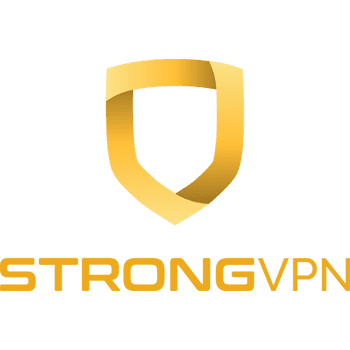BestVPNWorld
Top 10 Best UK VPN Providers
- Fast & secure servers in USA, UK & over 100 more countries
- Change your IP address & use the internet privately & securely
- Verified to work with popular platforms, apps & services
- Discover the best VPN deals & VPN free trials
- Available on:

BestVPNWorld has been featured on:
VPN Service
Features
Score
1
The best all-round VPN. Extremely fast, reliable & secure. Perfect for high bandwidth activity. 24/7 live chat support. Outstanding!
- Works with popular platforms & services
- Try it for free for 30 days
- Optimized for private & secure downloads
- Chrome, Firefox & Edge extensions
- No web logs & no IP/DNS address leaks
- 3,000 servers in 106 countries
2
High speed VPN with a large server network & advanced security settings. 24/7 live chat support.
- Ad & tracker blocker included
- Try it for free for 30 days
- Chrome & Firefox extensions
- No web logs & no IP/DNS leaks
- Servers in 91 countries
3
Good speeds & effective privacy settings. Dedicated anonymous IP system. 24/7 live chat support.
- Automatic Wi-Fi protection
- Try it for free for 45 days
- Chrome & Firefox extensions
- No web logs & no IP/DNS leaks
- Servers in 91 countries
4
Fast VPN built for beginners. Strong security & privacy features. 24/7 live chat support.
- GPS protection on Android
- 30-day refund promise
- Chrome & Firefox extensions
- No web logs & no IP/DNS leaks
- Servers in 100 countries
5
Excellent speeds, no-logs policy & advanced security features. Popular with Firestick users. Live chat support.
- Unlimited same-time connections
- Try it for free for 30 days
- Pool of 40,000 IP addresses
- No web logs & no IP/DNS leaks
- Servers in 53 countries
6
Great speeds via its Hydra VPN protocol. Good security standards. 24/7 live chat support.
- Real-time malware protection
- Try it for free for 45 days
- Chrome extension
- No IP/DNS address leaks
- Servers in 80 countries
7
Reliable speeds & very good privacy features. Simple and easy to use apps. Live chat support.
- Effective stealth VPN protocol
- 30-day refund promise
- Aimed at beginners
- No web logs & no IP/DNS leaks
- Servers in 62 countries
8
Secure VPN with good speeds & advanced customization settings. 24/7 live chat support.
- Works well on IPv6 connections
- 30-day refund promise
- Chrome & Firefox extensions
- No web logs & no IP/DNS leaks
- Servers in 53 countries
9
Good speeds across its network & wide range of additional settings. 24/7 live chat support.
- Built-in malware protection
- 30-day refund promise
- Chrome & Firefox extensions
- No web logs & no IP/DNS leaks
- Servers in 60 countries
10
A simple yet effective VPN that gets the job done at good speeds. 24/7 live chat support.
- A good option for newbies
- Try it for free for 30 days
- Chrome extension
- No web logs & no IP/DNS leaks
- Servers in 42 countries
BestVPNWorld has been featured on:
Frequently Asked Questions
A VPN is a clever piece of software that creates a secure (encrypted) internet connection – also known as a “VPN tunnel” – between your device and the website or app you are trying to access.
When you use a VPN, your standard internet connection is redirected via a secure VPN server before connecting to the wider Internet.
When you connect to a VPN server, your IP address changes and your connection is encrypted, typically using the AES-256 cipher and secure protocols like OpenVPN or WireGuard. As a result, your internet privacy and security is considerably stronger.
There are many benefits to using a VPN service. The two main benefits are:
1. Increased Privacy
A VPN is a great tool for your online privacy. When you connect to a VPN server, your web traffic firstly travels through it, and then onto a website or web application.
2. Enhanced Security
A VPN adds a layer of strong encryption to your Internet connection, making it safer and more secure.
If you need to send or receive sensitive information over the Internet, particularly if you’re using public WiFi, a VPN is essential.
There are hundreds of VPNs available on the market, of which many are free.
The problem is that most free VPNs come with severe limitations such as tiny data allowances, small server networks, and slow connection speeds.
There are also serious risks in using a free VPN. We’ve carried out several investigations of very popular free VPN apps and found that over 85% had security and privacy flaws.
We always recommend using top (paid) VPN services, which offer the below advantages:
➢ Much faster and stable speeds around the world
➢ Larger and more secure server infrastructures
➢ Stronger encryption, with better choice of VPN protocols
➢ Advanced privacy and security settings
➢ Compatibility with a wider range of devices
➢ Professional live customer support (often 24/7)
